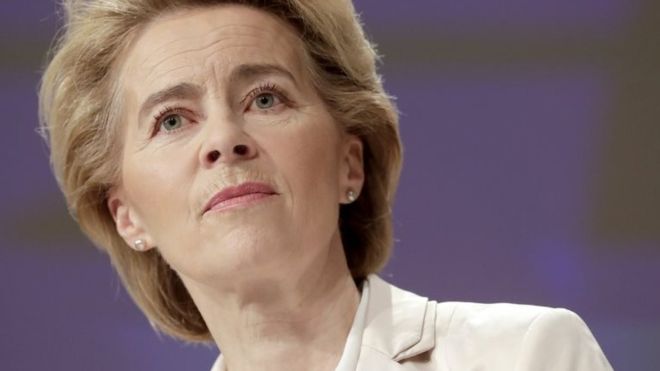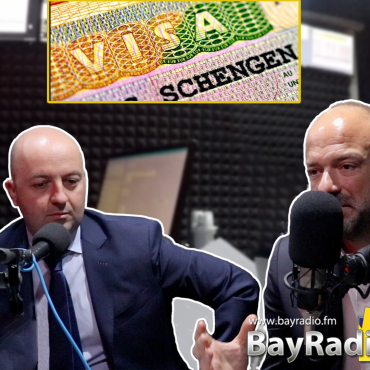-
 play_arrow
play_arrow
BayRadio Listen Live Broadcasting in Spain


The UK should consider the trade-offs it is willing to make in a post-Brexit deal, European Commission president Ursula von der Leyen says.
She said the closer the UK’s access to the single market – which it is leaving – the more it must adhere to EU rules.
But cabinet minister Michael Gove said the UK “would regain its economic and political independence” and any deal “would need to reflect that reality”.
Both sides agreed that differences remained after last week’s trade talks.
The UK wants a “Canada-style” free trade agreement, while Brussels has called for a closer relationship.
The second round of discussions is due to start on 18 March in London.
In a written ministerial statement, Mr Gove said the UK expected to table a number of legal texts, including a draft free trade agreement, ahead of the meeting.
But last month, he warned the government would walk away from trade talks in June unless there was a “broad outline” of a deal.
Boris Johnson has said if the UK does not get a deal similar to the EU-Canada trade agreement, then trade would have to be based on World Trade Organisation rules.
‘Rules of the game’
Speaking to reporters in Brussels, Ms von der Leyen acknowledged there were differences between the two sides following the first round of negotiations.
“We are aware that there are differences in the approach towards what scope should the future agreement have and what are – if I may say so – the rules of the game everybody has to abide to,” she said.
“So it will be important that the UK makes up its mind – the closer they want to have access to the single market, the more they have to play by the rules that are the rules of the single market.
“If this is not the UK’s choice then of course they will be more distant and it will be more difficult for the UK to access the single market.”
She said it was “up to the UK within the negotiations to think about the trade-offs they want to take into account”.
Mr Gove later published a statement, saying there had been “a degree of common understanding” during the discussions in some areas, which would be returned to in future talks.
But, he added: “In other areas, notably fisheries, governance and dispute settlement, and the so-called ‘level playing field’, there were, as expected, significant differences.”
Following last week’s talks in Brussels, the prime minister’s Europe adviser David Frost said the two sides “now understand each other well”.
EU chief negotiator Michel Barnier said the talks had been “constructive” but there were “very serious divergences” between the sides.
A UK government spokesman said its team had “made clear” the UK would “regain our legal and economic independence – and that the future relationship must reflect that fact”.
Written by: BayRadio News
Similar posts
Recent Posts
- Robotic Surgery for Prostate Cancer: What Is Radical Prostatectomy and How Does the Da Vinci Robot Improve It
- What Is Fibromyalgia? Symptoms and Treatments of an Invisible Illness That Requires Specialized Attention
- AMASVISTA Glass: 10 reasons to choose SUNFLEX glass curtains
- Robotic Surgery, Immunotherapy and Comprehensive Care Take Centre Stage at Pancreatic Cancer Conference at Quirónsalud Torrevieja
- Robotic Surgery Against Ovarian Cancer: Greater Precision, Less Pain and Faster Recovery

Ctra. Cabo La Nao, CC La Nao, Local 6 03730 Javea, Alicante, Spain
Advertise with us
Do you have a business in Spain? Do you provide a service to the expat community in Spain? Would you like your message to reach over 500.000 people on a weekly basis?
BayRadio is a community orientated radio station offering fantastic content to our many listeners and followers across our various platforms. Contact us now and find out what Bay can do for you!
Our business is helping your business grow.
BAY RADIO S.L. © 2024. ALL RIGHTS RESERVED. WEB DESIGN BY MEDIANIC







